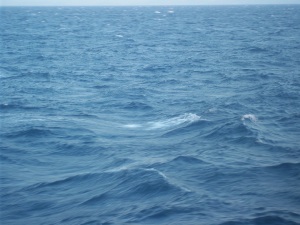By Peggy Gish
In the strong wind, swells of the waves peaked as high as one or two yards. Our boat only rocked gently. We were traveling across the Aegean Sea from the coast of Turkey to Lesbos, Greece in a Turkish ferry, high above the waves. It was a sobering trip, though, when we thought how terrifying this same, approximately 10 km, trip might be like for refugees crammed in a small motor-powered rubber dinghy in the middle of the night. The water, a beautiful blue in the daytime, is now b eing called “a graveyard,” because the countless numbers of refugees who have drowned in their attempt to cross this stretch of the sea.
eing called “a graveyard,” because the countless numbers of refugees who have drowned in their attempt to cross this stretch of the sea.
I imagined being a seven or eight month pregnant woman, or a mother holding a crying child, sitting tightly with thirty or forty others, surrounded by the dark water, not being able to see where you are or to see the shore of the coast of the Island of Lesbos ahead. They watch the waves, not knowing whether they will fill or overturn the boat. Will their group be able to stay hidden from coast guards until their boat leaves Turkey’s territorial waters, or be caught and sent back to Turkey and lose the money they paid the smuggler? Will the driver be able to navigate it safely and find the way? Will they make it to Greece alive?
Such a trip would follow weeks of escaping their violent home situations and traveling toward the Mediterranean Sea, at times, secretly, to pass through borders, and getting little sleep or proper food. Even if the Aegean Sea is rough, refugees are often forced to board the boats and set off. One family told of a smuggler holding a gun to the head of their child, threatening to shoot if they didn’t board at the time they were told to. Often an inexperienced refugee is given a reduced rate on his trip if he drives the boat, but then he is in danger of being arrested for smuggling. Smugglers have been known to put not enough fuel in the motor for the trip.
In contrast, a person like me, with a privileged nationality and passport, can choose to make this hour and a half trip safely in a boat high above the waves for about four Euros, or five American dollars. Refugees eke out an average of $1,000 for their three or four hour trip across. Our boat doesn’t have to hide from coast guards or travel in the middle of the night. I can go confidently and calmly, without the pervasive and debilitating terror they feel.
What gives me the right to have this privilege? What did they do to have this curse? Why is my life considered more valuable than theirs?
As an American citizen, I repudiate the policies and actions of my country that have spawned the violence these refugees leave in desperation, and have wish I could do more to try to expose and change them. It does me no good to take on guilt for my nationality and for the privilege that comes with that. The pain and unanswered questions I am left with, however, can only be helpful if they keep prying me out of my comfort and complacency to find ways to act in solidarity with these brothers and sisters in the flimsy boats and those who are crammed into refugee camps that are more like prison camps. They are bearing the brunt of my country’s thirst for power and consumption. They deserve humane care now, but also our serious efforts to stop this mounting escalation of violence that force people to risk so much to find a place of safety.
